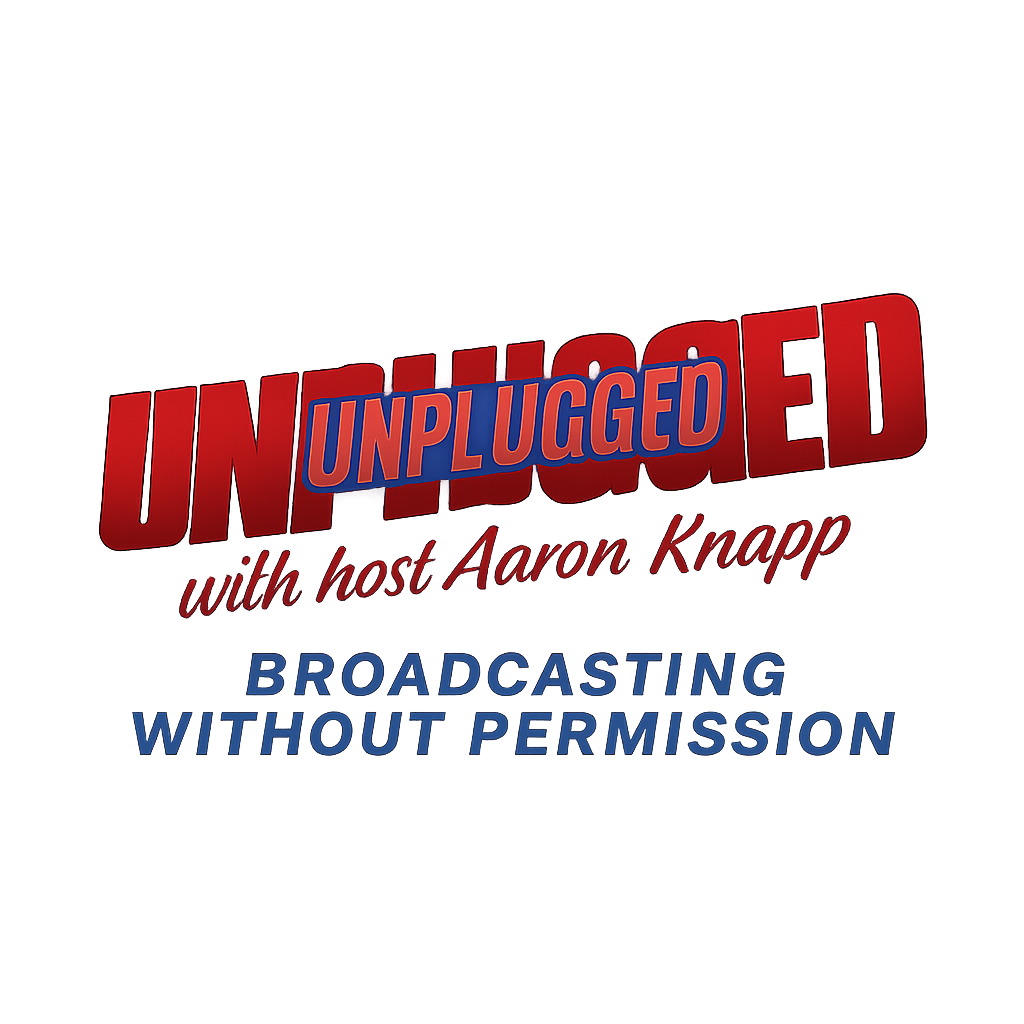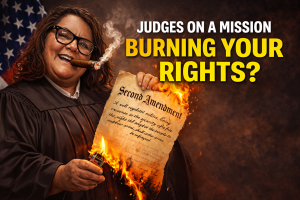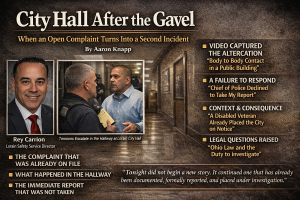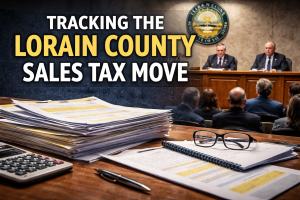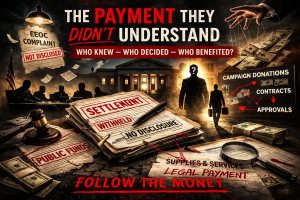Episode 9: When the FOP Voted No Confidence – and What Happened After
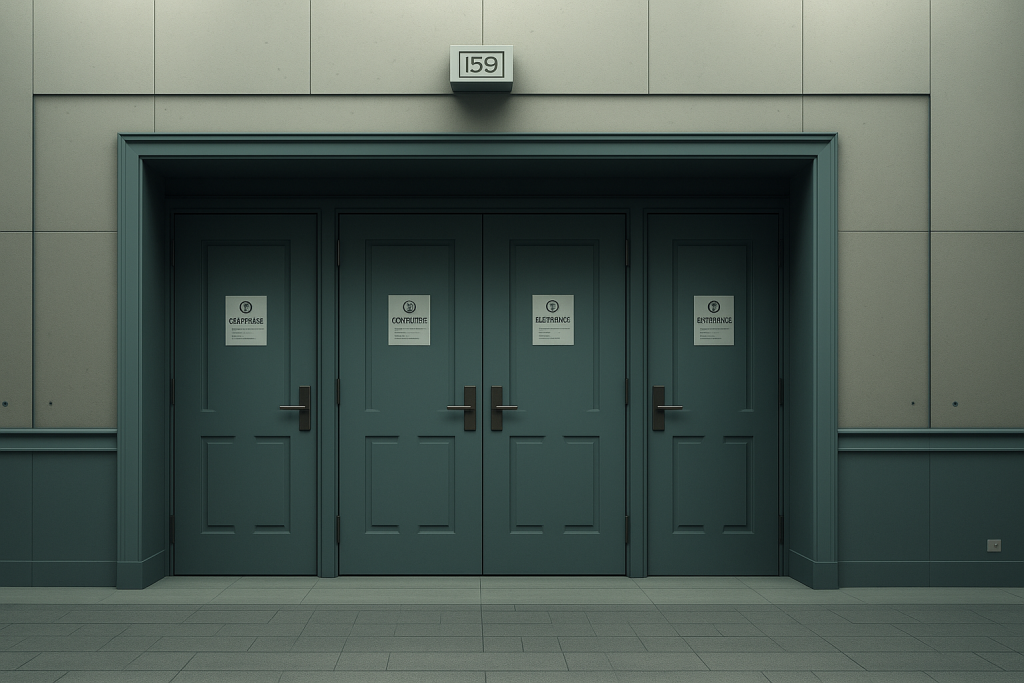
A Fracture at the Core: The Vote that Set the Stage
Apr 22, 2025
Investigative Article By Aaron Knapp
I. A Fracture at the Core: The Vote that Set the Stage

Thanks for reading Aaron’s Substack! Subscribe for free to receive new posts and support my work.
The Lorain Police Department’s internal discontent reached a boiling point in early 2021 when the Fraternal Order of Police (FOP) Lodge No. 3 held a vote of no confidence against Chief James McCann. The event, which occurred just over a year into McCann’s tenure, revealed fractures within the department that would deepen in subsequent years. The catalyst was a series of allegations brought forward by FOP leadership, primarily Sergeant Kyle Gelenius and Officer Kyle Shawver, who accused McCann of using derogatory and discriminatory language in workplace settings. Among the claims was McCann’s mispronunciation of Gelenius’s name as “Gay-lenius” and derogatory comments toward Officer Jamie Ball, allegedly calling him a “whiny b—” in reference to a union matter.
The investigation, conducted by Clemans-Nelson, a consulting firm often used by municipalities to assess workplace conduct, concluded that it was “more likely than not” that McCann made the offensive remarks. The findings were damaging, with the city mandating McCann undergo management retraining in response. However, that step did little to address the broader concerns. In a letter to Mayor Jack Bradley, the FOP described a department in crisis:
“Morale has plummeted to depths never before seen,” the union wrote. “This vote is not revenge. It is a cry for help.”
Sergeant Gelenius, then FOP President, recused himself from chairing the meeting where the vote occurred due to his personal involvement in the complaint. Vice President Jamie Ball oversaw the proceedings. According to Ball, the vote was introduced approximately 45 minutes into the meeting under the item “labor-management issues.” He defended the timing:
“It was a legitimate agenda item. Everyone had notice.”
Officer Chris Ferenzi, however, disputed that characterization in an email to Mayor Bradley:
“The meeting was stacked. Many of us didn’t even know a vote was happening. How can a handful of voices claim to represent 90 officers?”
The vote passed with 28 in favor of “no confidence,” four opposed, and eight abstaining—numbers that raised further questions about participation and legitimacy.
What emerged from the vote was not a clear resolution, but an intensified schism. The city did not move to suspend or investigate McCann beyond requiring the retraining already prompted by the Clemans-Nelson report. Instead, McCann remained in place, emboldened. In a Chronicle-Telegram interview, Mayor Bradley appeared dismissive:
“Sometimes it’s just time to move on.”
The vote, which union leaders hoped would force systemic change, instead served to entrench McCann’s position.
The aftermath of this episode would linger for years, and the environment it fostered—one in which rank-and-file concerns were dismissed—laid the groundwork for what would come next: the rise and fall of Lieutenant Corey Middlebrooks. The tension, the retaliation, and the pattern of targeted behavior that began with union officers soon evolved into something more dangerous—an organized resistance to internal dissent.
The writing had been on the wall since 2021. When a formal vote of no confidence failed to bring reform or even public transparency, it set a precedent. Complaints by Middlebrooks and others, raised later under the same administration, were treated with the same indifference. Patterns of hostility, silence, and retaliation now appeared to be a feature—not a flaw—of McCann’s tenure.
Internal records suggest that union-related communication declined markedly in the aftermath of the vote. Public records requests returned few emails or memos reflecting dissent, implying that officers had begun communicating offline or choosing silence. Whether this shift was driven by fear of surveillance, a lack of faith in leadership, or learned futility, the result was the same: the institutionalization of disengagement.
That silence enabled what came next. By the time Middlebrooks filed his discrimination complaint, the mechanisms of suppression were well-practiced. Officers described a sense of futility, a resignation that speaking out would accomplish little. The union’s earlier vote, bold as it had been, ultimately changed nothing. That perceived impotence would only embolden those who saw transparency and accountability as threats to be neutralized.
II. Behind Closed Doors: How the Vote Was Managed—and Contested
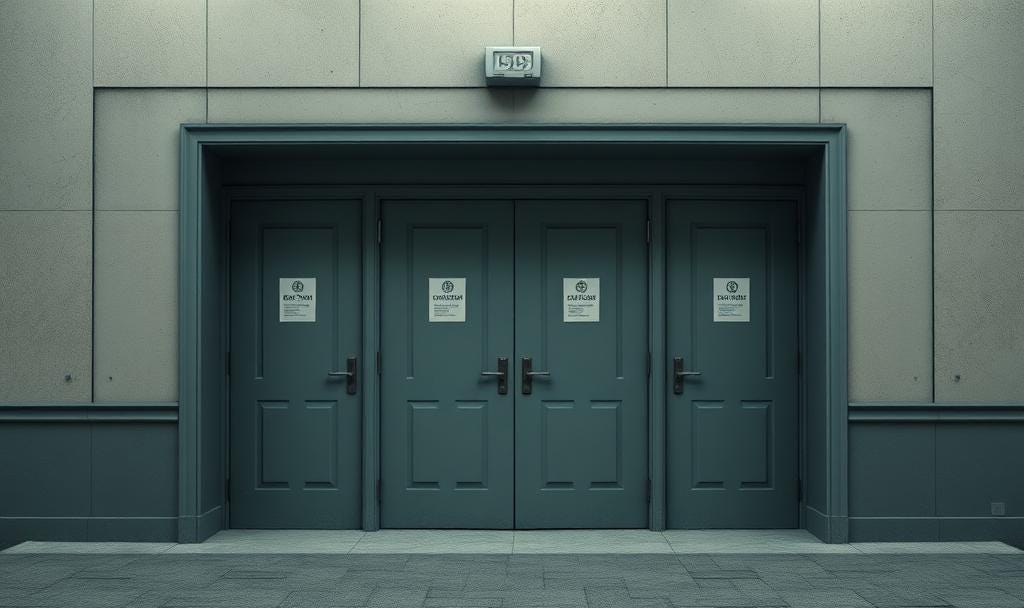
The no-confidence vote held by FOP Lodge No. 3 in Spring 2021 was a landmark event, but from the moment it concluded, its legitimacy was debated not only by city leaders, but within the police union itself. According to internal union communications reviewed by The Chronicle-Telegram, the meeting took place during a regular FOP Lodge gathering on a Thursday prior to March 2, 2021. About 45 minutes into the meeting, under the agenda item labeled “labor management issues,” a motion was introduced calling for a vote of no confidence in Chief McCann.
Sergeant Jamie Ball, who chaired the meeting in place of FOP President Kyle Gelenius (due to Gelenius’s involvement in the underlying complaint), defended the process. In a public statement at the time, Ball clarified:
“It was a legitimate agenda item. Everyone had notice, and any member had the right to introduce a motion. We did not ‘stack’ the meeting. This was a cry for help.”
Officer Chris Ferenzi, however, took a sharply different view. In a letter emailed directly to Mayor Jack Bradley, Ferenzi alleged that many union members were unaware a vote would be held and suggested the meeting had been engineered to produce a specific outcome:
“The meeting was stacked. Many of us didn’t even know a vote was happening. How can a handful of voices claim to represent 90 officers?”
This challenge created an immediate rift within the FOP, one that mirrored the very divisions the vote sought to address. Ball responded publicly, asserting that procedural rules were followed, and members were encouraged to attend the meeting. Gelenius also later defended the process in comments reported by local media, stating that union bylaws allowed any member to raise a motion during regular meetings.
Despite the procedural dispute, the vote proceeded and passed with 28 members expressing no confidence in Chief McCann, 4 members voting to support him, and 8 abstaining. Out of a potential membership of approximately 90 officers, only 40 cast votes—less than half. While the outcome represented a majority of those present, it did not necessarily reflect the sentiments of the entire department.
This lack of broad participation became the vote’s Achilles’ heel. While FOP leadership viewed the outcome as an urgent signal to city administration, opponents like Ferenzi used the turnout as evidence that the vote was not broadly endorsed. In internal FOP emails obtained through a public records request, union officers debated whether more transparency or advanced notice would have strengthened the outcome.
The low turnout also provided political cover for Mayor Bradley, who acknowledged the vote but questioned its impact. In his public comments to The Chronicle-Telegram, Bradley stated:
“Sometimes it’s just time to move on,” referring to the underlying Clemans-Nelson investigation into McCann’s remarks.
This response—part dismissal, part deflection—sent a clear message. Despite the FOP’s unprecedented move, the city was not prepared to remove or discipline Chief McCann based solely on internal dissent. The city’s legal and human resources departments offered no public comment on whether further investigation or oversight would follow the vote.
Internally, however, the effects were pronounced. Several officers described a chilling effect, though not in direct quotes to the media. Union communications appeared to decline after the vote, and meeting minutes reflected a more cautious tone. Officers became more reluctant to raise controversial issues in group settings. When asked during a later legal proceeding about the fallout from the 2021 vote, one officer noted: “We stopped bringing things up in meetings—we knew it wouldn’t go anywhere.”
This environment of caution and disengagement foreshadowed the treatment of future complaints, most notably those raised by Lt. Corey Middlebrooks. Like the union before him, Middlebrooks would come forward with detailed allegations—only to encounter procedural indifference, administrative delay, and ultimately, retaliation. The union’s fractured response to its own internal dissent in 2021 had unintentionally set the template for what would follow.
III. The Vote That Echoed in Silence: Culture Shift and Consequence

In the months following the no-confidence vote, a perceptible shift occurred within the Lorain Police Department. While the vote had signaled an open rupture between the FOP Lodge No. 3 and Chief James McCann, its limited impact seemed to communicate something even more enduring: that accountability, in Lorain, was optional.
Although union leadership remained vocal, the rest of the department did not. Officers who once spoke candidly in meetings or via department email grew increasingly cautious. Meeting minutes from subsequent FOP gatherings reflected a notable change in tone—less confrontational, more reserved. A chilling effect had settled over the rank and file.
This shift wasn’t imaginary. Public records reviewed for this report show a drop in documented union grievances submitted between mid-2021 and early 2023. At a time when national discourse on police reform and accountability was intensifying, Lorain’s internal complaint mechanisms seemed to stall.
The city offered no new policies, no reviews, and no public forums following the vote. Mayor Bradley’s brief comments to The Chronicle-Telegram stood as the only city acknowledgment of the vote’s significance. His call to “move on” set a tone that was heard throughout the department.
“We held out hope that the vote would trigger change. It didn’t,” said one officer during a later deposition in a separate civil matter. “Nothing happened, and that told us everything we needed to know.”
The failure to act not only discouraged formal complaints—it normalized quiet tolerance of misconduct. Officers with concerns about retaliation or leadership decisions increasingly chose not to raise them at all. By the time Lt. Corey Middlebrooks filed his EEOC complaint in 2024, he was navigating a system hardened against dissent.
The parallels are striking. Middlebrooks alleged racial discrimination, retaliation, and procedural sabotage. He claimed the department targeted him for speaking up, especially after raising concerns about discipline inconsistencies and union involvement. These were the same themes that had emerged during the FOP’s confrontation with McCann three years earlier.
And yet, in both cases, the outcome was the same: no meaningful action from city leadership. No structural reform. No review of how complaints were being handled. The silence after the vote became the blueprint for dealing with whistleblowers like Middlebrooks.
In retrospect, the vote’s failure wasn’t merely a missed opportunity—it was a signal. It showed that even with overwhelming evidence and a formal union rebuke, McCann’s position was secure. Officers took note. So did those in city government who may have feared what a real investigation could uncover.
“We started choosing silence,” said one officer in a grievance hearing transcript. “You couldn’t unsee what happened after that vote. If they wouldn’t listen to the union, why would they listen to us?”
This is the institutional rot that took hold in the years that followed. The 2021 no-confidence vote was not forgotten—it was internalized. It told Lorain’s officers that raising concerns wouldn’t just be ignored; it could make you a target. That lesson would be tragically reinforced in the next chapter: the case of Lieutenant Corey Middlebrooks.
IV. The City That Looked Away: Mayor Bradley, Accountability, and Political Calculations
After the no-confidence vote against Chief James McCann in early 2021, what followed wasn’t reform — it was silence. For many in the Lorain Police Department, the vote was meant to mark a turning point. But for the city’s leadership, it became a test of whether dissent could be ignored into submission. The outcome became clear almost immediately.
Despite being informed of the vote and receiving a formal letter from FOP Lodge No. 3, Mayor Jack Bradley issued no formal response beyond comments to The Chronicle-Telegram. There, he acknowledged receiving the vote, noted that he would meet with union leaders, and remarked:
“Sometimes it’s just time to move on.”
That one line became emblematic of the city’s approach — not just to this crisis, but to the broader issue of accountability in public safety leadership.
Behind the scenes, no special council session was convened. No personnel hearings followed. There were no policy reforms announced, no task forces formed, and no effort to assess broader concerns about leadership culture inside the Lorain Police Department. McCann’s management training, already mandated from the Clemans-Nelson findings, was treated as the end of the matter. The City of Lorain Law Department and Human Resources made no public statement and declined to initiate any further inquiry.
City Hall’s inaction sent a message. And officers were listening.
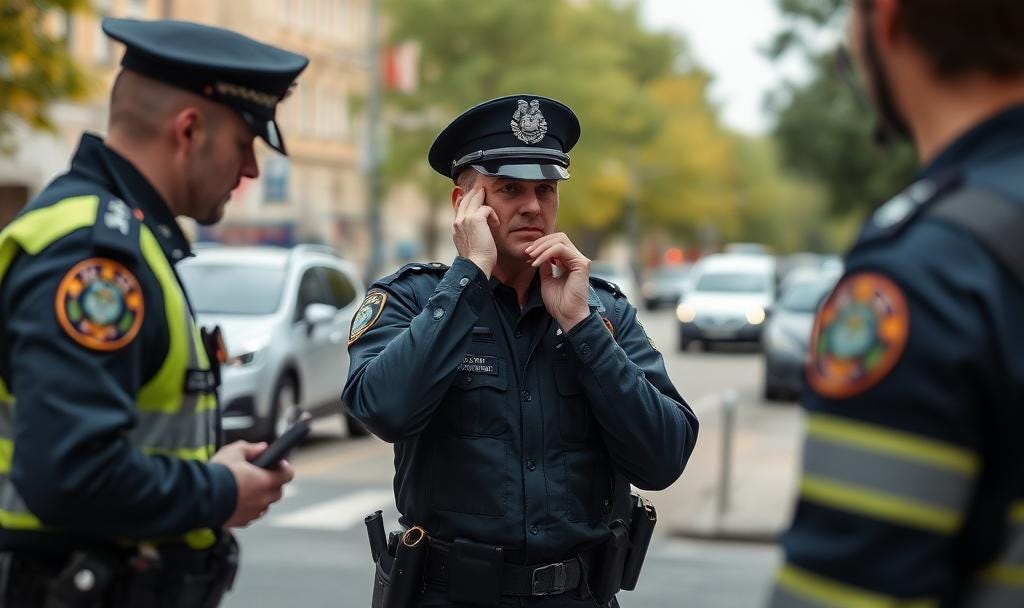
Meeting records obtained through public information requests show no further correspondence from the Mayor’s Office to the FOP about the incident. Internal emails reflect only cursory acknowledgement, and there is no public record of any follow-up oversight mechanism or implementation of post-vote reforms. The event was boxed in, filed away, and rendered inert.
This culture of institutional neglect would resurface again with the case of Lt. Corey Middlebrooks — who, three years later, alleged that he had been targeted for raising concerns about discriminatory practices and procedural inconsistencies under McCann. Once again, the city would sidestep calls for independent inquiry and opt for quiet containment.
This is not a coincidence — it is a pattern. And it starts with the vote.
The FOP had warned the Mayor in its original letter that morale had “plummeted to depths never before seen.” Yet no wellness review was conducted. No internal survey distributed. No third-party ombudsman or internal affairs process was revamped to support whistleblowing officers. These missed opportunities set the tone for what followed. Officers with future complaints — like Middlebrooks — knew better than to expect institutional support.
While some city officials may have viewed the vote as a union power play, the broader implications for public trust and officer confidence were dismissed. The reluctance to act created a vacuum. And in that vacuum, toxic leadership structures calcified.
One veteran officer, reflecting years later on the city’s response, said during a disciplinary hearing:
“We gave them the opportunity to fix things, and they didn’t even flinch.”
The city’s political alignment with Chief McCann — whether strategic, personal, or born of mutual interest — seemed to override the democratic significance of the FOP’s vote. In Lorain, the warning was clear. You could speak up. But no one would listen.
V. From Missed Warnings to Measurable Fallout: The Vote’s Legacy and the Middlebrooks Parallel
The no-confidence vote against Chief James McCann wasn’t just a symbolic act—it was a stress test. And it failed. What followed in the years after 2021 wasn’t reconciliation or reform—it was erosion: of morale, of union strength, and of the belief that speaking up could change anything. This environment paved the way for one of the department’s most troubling internal reckonings: the 2024 retaliation complaint filed by Lieutenant Corey Middlebrooks.
By the time Middlebrooks came forward, the pattern was familiar. His EEOC and internal complaints mirrored the very themes voiced by the FOP in their 2021 letter to Mayor Bradley—only now, the costs had grown heavier. Middlebrooks wasn’t just an officer; he was a Black lieutenant who had ascended the ranks through a department culture he increasingly found hostile and inequitable. His allegations—of race-based disciplinary disparities, of being undermined, isolated, and targeted for political reasons—took root in the soil left behind by that failed vote.
The city’s response to Middlebrooks was telling. Despite documented patterns of internal discipline irregularities, despite corroborating testimony from colleagues, and despite national scrutiny on racial equity in law enforcement, the response was muted. The city launched an internal affairs investigation—one that, according to the report’s timeline, never addressed the underlying leadership dynamics that had enabled retaliation in the first place. The focus, again, was containment—not accountability.
This should sound familiar. The FOP’s 2021 plea to “save the department from division and decline” was met with a shrug. McCann was sent to management training. No structural changes were made. No city-led review followed. And no protection was extended to those who had risked their careers by speaking up.
“I was there when we voted,” one officer recalled anonymously in public court filings related to the Middlebrooks case. “I didn’t know it then, but that was the last time I believed someone might listen.”
Even years later, the psychological and operational fallout of that failed vote remained. Internal complaints continued to decline. Officers learned that union solidarity didn’t guarantee city action. And newer staffers—those who came after the vote—entered a department that had already learned to look the other way. In the Middlebrooks investigation transcripts, supervisors acknowledged that younger officers were hesitant to participate in even routine reviews involving the chief’s office.
By 2024, the city was once again faced with a crossroads: another internal complaint, another opportunity to lead. This time it was racial, not just political. It was about the systemic disadvantage experienced by one of the department’s highest-ranking officers. And once again, the city hesitated.
“He [Middlebrooks] had years of exceptional reviews,” one former supervisor said in an OPS interview. “He didn’t suddenly become insubordinate. He became inconvenient.”
The city’s inaction in 2021 had consequences. When the FOP sounded the alarm and the administration ignored it, it set a precedent that future complaints—no matter how serious—would be treated as personnel issues rather than systemic failures. That precedent is now deeply woven into the institutional culture.
The tragedy of the no-confidence vote is not that it failed to remove McCann. It’s that it failed to protect anyone who came after. Middlebrooks’s ordeal became proof that the vote hadn’t just been ignored—it had been overwritten. The memory of that vote wasn’t just faded; it had been strategically erased in order to protect the hierarchy at all costs.
VI. The Whistleblower Files: A Department at War with Its Own Truth
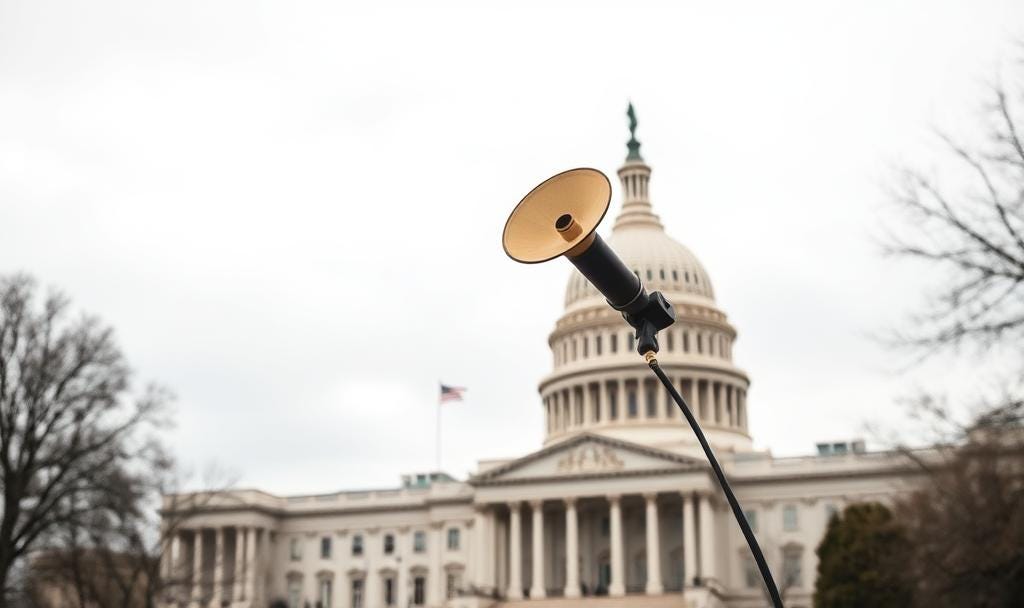
Lieutenant Corey Middlebrooks’s complaint did not emerge in a vacuum—it emerged from the rubble of the FOP’s failed no-confidence vote. Just as the union’s warnings were dismissed in 2021, so too were Middlebrooks’s allegations in 2024. The department had built a culture of silence, and when Middlebrooks broke it, the reaction was swift—and retaliatory.
Middlebrooks alleged systemic discrimination, targeting, and unequal treatment. His personnel file, once praised for exemplary conduct, quickly transformed into a litany of punitive write-ups. Officers who once worked alongside him were suddenly silent. Some privately expressed fear. Others said nothing at all.
OPS documents and interview transcripts reveal troubling patterns. Complaints against McCann and his inner circle were slow-walked or shelved. Meanwhile, internal complaints about Middlebrooks were fast-tracked. As one analyst noted, “It’s not just about what gets investigated—it’s about who does the investigating, and for whom.”
City HR’s involvement did not inspire confidence either. Their failure to initiate external review in light of racial discrimination claims contradicted best practices for civil rights compliance. Instead of addressing institutional bias, the city doubled down on its defense of McCann’s administration.
The parallels to 2021 were impossible to ignore. In both cases, official retaliation was met with indifference. In both cases, procedural mechanisms were used not to seek justice but to suppress accountability. Middlebrooks’s case functioned as a stress test for the department’s ethics—and it failed.
“I knew when I spoke up, they’d come for me,” Middlebrooks reportedly told colleagues. “But silence wasn’t an option.”
By mid-2025, Middlebrooks was off the force. The department, unchanged, marched forward. The FOP, under new leadership, issued no new statement. The vote from 2021 now stood as a warning unheeded.
Whistleblower protections in Ohio theoretically exist, but Lorain’s case shows how little that means when city leadership aligns with the very actors under scrutiny. There was no meaningful oversight from council. No review board. No transparency.
Public trust suffered. Community members, once supporters of reform, watched the Middlebrooks case unfold with grim familiarity. They had seen it before. The city’s inaction, once tolerated, now looked like complicity.
The final verdict? Lorain’s leadership had the opportunity—multiple times—to reset course. To listen to its union. To honor its commitments to fairness. But instead, they chose protectionism. What began as a personnel issue became a civil rights crisis. And like so many warning signs before it, it was ignored.
Author’s Note: The Vote That Meant Nothing
In reviewing the no-confidence vote of 2021 and the retaliation faced by Lt. Corey Middlebrooks, I see a common thread: a city leadership that treats accountability as optional and silence as strategy.
I’ve read the internal investigations, the statements, the lawsuits, and the pages of testimony. What emerges is not a story about disagreement—it’s a pattern of systemic indifference. When officers raised red flags, they were met with shrugs. When those flags became fires, they were told to put them out quietly—or be consumed by them.
This wasn’t just about Kyle Gelenius or Jamie Ball. It wasn’t just about Corey Middlebrooks. It’s about a culture cultivated by Chief James McCann, insulated by City Hall, and normalized by inaction. The “vote” wasn’t a vote. It was a warning. And nobody listened.
And so here we are. Again.
– Aaron C. Knapp
Publisher, Lorain Politics Unplugged
Next: Episode 10 – “The Middlebrooks Tapes: What the Garrity Interviews Reveal”
